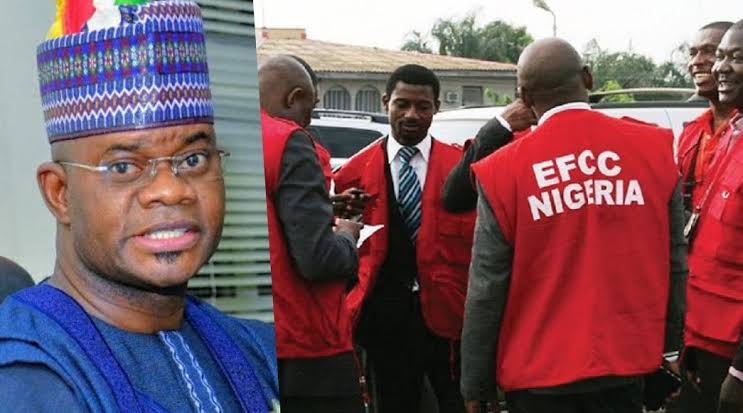The appeal by Economic and Financial Crimes Commission (EFCC) against a Kogi court order blocking the arrest of Yahaya Bello, the immediate past governor of Kogi State goes before the Abuja Court of Appeal today.
The anti-graft agency wants to prosecute Bello on corruption charges, but a lower court put a hold on it due to his lawsuit.
EFCC is seeking to arraign Bello on 19 charges of money laundering, breach of trust and misappropriation of funds to the tune of N80.2bn.
EFCC approached the Federal High Court in Abuja Wednesday to get an arrest warrant while the Federal High Court in Kogi was delivering judgment on Bello’s fundamental human rights suit.
The Kogi court, in a ruling on February 9, 2024, restrained the EFCC from “inviting, arresting, detaining, prosecuting” Bello pending the determination of a fundamental rights suit he filed before the court.
EFCC moved to arrest Bello in his Abuja home last week but the attempt failed. This stalled his arraignment which was billed for the following day before Justice Nwite. The arraignment and ruling were subsequently adjourned till Tuesday April 23.
Alhough Bello was absent to take his plea, his team of lawyers, led by Abdulwahab Mohammed (SAN), informed the court of the matter before the appeal court.
Mohammed told the court that it was wrong for the EFCC to apply for an arrest warrant against Bello when the same matter was already before the appeal court.
The EFCC counsel, Kemi Pinehero, argued that court could go ahead with the trial.
The EFCC, in its appeal through its solicitor, J.S. Okutepa (SAN), is seeking a stay of execution to the order of the trial court in Kogi State.
In the appeal marked CA/ABJ/PRE/RDA/CV/165MI, the anti-graft agency contested the court order on the grounds that it is a body created by statute to carry out functions specified in its Establishment Act and empowered to investigate and prosecute economic crimes as set out under sections 6 and 7 of the EFCC Act.
The EFCC faulted the order of the lower court, describing it as an obstruction.
“The orders granted ex parte on the 9th of February 2024 constitute a clog in the progress of the appellant/applicant’s performance of its statutory functions and duties under the EFCC Act 2004,” the EFCC said.

